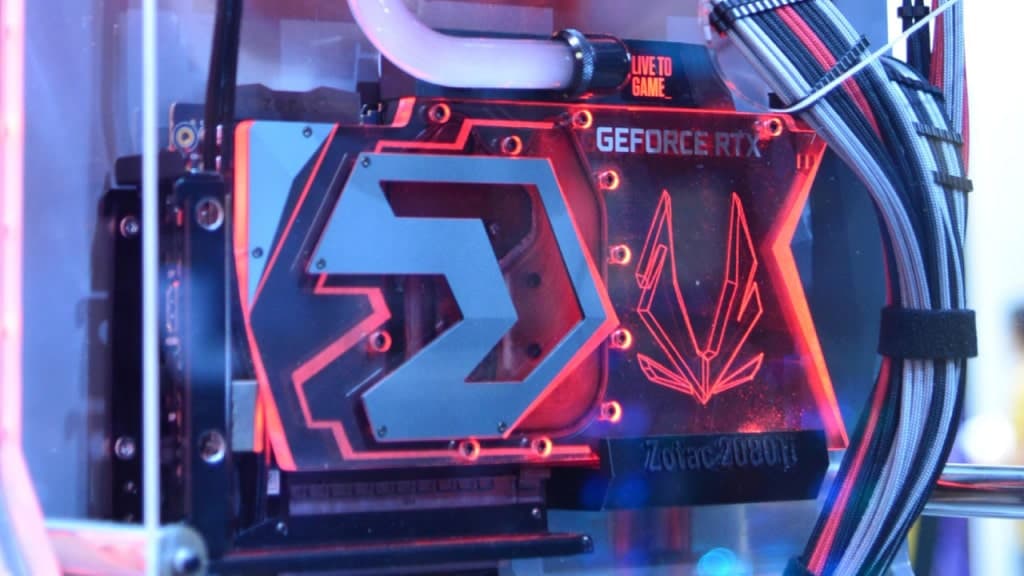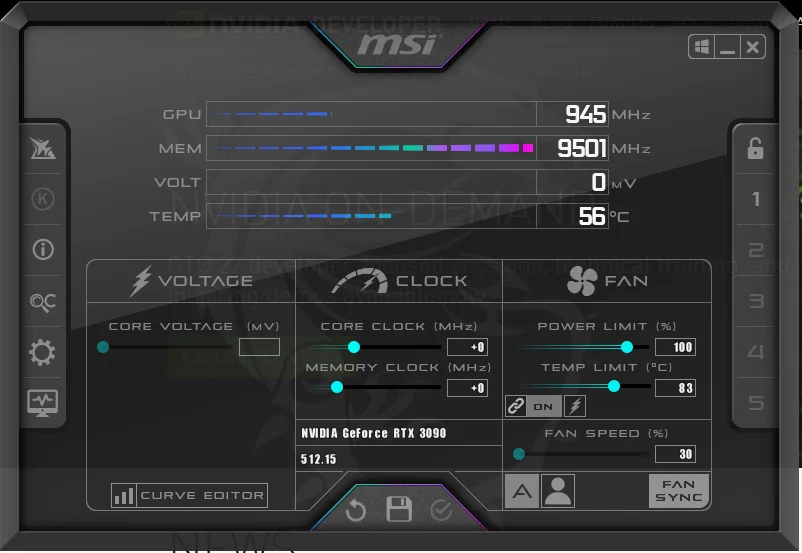GPU clock speed depends on the model and the tasks you are doing. For gaming, clock speeds usually fall between 1,500 and 2,000 MHz. Higher speeds usually give better performance. Always check your GPU’s recommended settings to avoid overheating.
In this article, your GPU clock speed should follow the manufacturer’s guidelines, usually around gaming. Faster speeds offer better performance but require proper cooling.
What is Memory Clock Speed?
Memory clock speed shows how fast your GPU’s memory works. A higher memory clock speed improves data transfer between the GPU and memory, resulting in smoother gaming and better video editing performance. Always check your GPU’s recommended memory speed to avoid performance issues.

What is Core Clock Speed?
A higher core clock speed means better performance for tasks like gaming or video editing. Most GPUs have core clock speeds between 1,500 to 2,000 MHz. However, higher speeds need good cooling to prevent overheating. Always follow your GPU’s recommended settings for safe use.
Read Also: What Does OC Mean In GPU – Understand GPU!
How do GPU Core Clocks Impact Performance?
GPU core clocks directly affect performance. A higher core clock speed allows the GPU to process data faster, leading to better graphics and smoother gameplay.
However, faster speeds can cause more heat, so good cooling is important. For most users, balancing core clock speed and cooling ensures stable performance without overheating.
What is the difference between Memory Clock Speed and Core Clock Speed?
Memory clock speed controls how fast the GPU’s memory sends data, while core clock speed controls how fast the GPU’s core processes tasks. Both are important for performance. Memory clock speed influences how quickly data moves between the GPU and memory.

The core clock speed affects the overall graphics performance and gameplay experience. A balance between the two helps your GPU work smoothly for gaming or other tasks.
Does Memory Clock Speed Affect FPS?
Yes, memory clock speed can affect FPS in games. A higher memory clock speed helps your GPU move data faster, improving performance in games with high-resolution textures.
While it’s not the only factor, faster memory speeds can lead to smoother gameplay and better FPS, especially in graphics-heavy games.
Read Also: How Many GPU Cores Do I Need – Completely Guide 2024!
How do GPU Memory Clocks Impact Performance?
These memory clocks impact performance by controlling how fast data moves between the GPU and its memory. Faster memory clock speeds enhance the transfer of textures and data, resulting in smoother gameplay and quicker load times in high-resolution games.
What is GPU Clock Speed?
It is measured in MHz. A higher clock speed means the GPU can handle more tasks quickly, leading to better performance in games and apps. However, higher speeds can also generate more heat, so good cooling is needed to keep everything running smoothly.

Which clock should you consider while buying a GPU?
When buying a GPU, consider both the core clock speed and memory clock speed. Core clock speed determines how quickly the GPU performs tasks, while memory clock speed affects the rate at which data is transferred.
Higher speeds can improve performance, but ensure your system has good cooling to handle increased heat.
What is more important in a GPU: clock speed or memory?
Clock speed determines the GPU’s task processing speed, while memory capacity impacts the amount of data the GPU can manage. For better performance, you need a good balance of both. High clock speeds help with fast processing, while more memory helps with handling larger, detailed graphics.
Read Also: How Good Is 30c GPU Temp On Idle – Best Information 2024!
How Much Can GPU Overclocking Actually Improve My Performance?
GPU overclocking can improve performance by making the GPU run faster than its default settings. This can lead to better frame rates and smoother gameplay. However, the boost in performance varies by game and system.
Overclocking also increases heat, so good cooling is necessary to avoid overheating and maintain stable performance.
How to see the default base and boost clocks of your GPU?
Check the GPU specifications on the manufacturer’s website or use software like GPU-Z or MSI Afterburner. These tools show detailed information about your GPU’s clock speeds. You can also find this information in the graphics card’s user manual or through system monitoring software.

How do you see your actual clock speed in action?
These tools show real-time data on your GPU’s clock speeds while you use your computer. You can also monitor the GPU’s performance via the graphics settings or system information on your computer.
Frequently Asked Questions:
1. Does increasing the memory clock increase FPS?
Increasing the memory clock can improve FPS by speeding up data transfer between the GPU and memory. This helps with smoother gameplay, especially in games with high-resolution textures, but the effect varies by game and system.
2. Is the memory clock or the core clock better for gaming?
The core clock is generally more important for gaming as it affects the GPU’s overall processing speed. However, a good balance with memory clock speed is also needed for good performance, especially in games with high-resolution textures.
3. What is a good memory clock speed?
A good memory clock speed for gaming is usually between 1,500 and 2,000 MHz. Higher speeds can improve performance, but make sure your GPU and cooling system support these speeds to avoid overheating and ensure stable operation.
4. What should the GPU clock speed be?
The GPU clock speed should be around 1,500 to 2,000 MHz for gaming. Higher speeds can boost performance, but ensure your cooling system is adequate to handle the extra heat and keep the GPU running smoothly.
5. What should I clock my GPU at?
You should clock your GPU at its factory-recommended speeds, usually between 1,500 and 2,000 MHz for gaming. Overclocking can boost performance, but make sure your cooling system is good enough to prevent overheating and maintain stability.
Conclusion:
In conclusion, focus on both core and memory clock speeds, balancing them with proper cooling. Stick to the manufacturer’s recommended settings for the best results and avoid overheating for stable and smooth gaming.